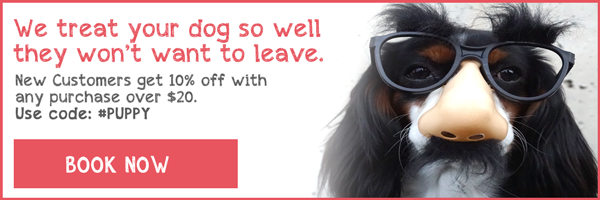Five things you should never do with a young dog

Teaching a young pup the ropes can be challenging, whether you’re a first-time dog owner or a veteran. In the article to follow, we’re going to pinpoint a list of things you should avoid with the goal of making their pathway to adulthood as smooth as possible.
Looking to get a puppy for the family home, but not sure which breeds are best? Refer to our companion article on the breeds that make the best family pets. These dogs are all easy to train and great social companions for adults and children alike.
Tip #1: Don’t change the rules
One of the biggest mistakes you can make is to change the ruleset from one day to the next. You might indulge certain behaviors at one time, but then scold your dog for the same behavior a few hours later. This only creates confusion and leaves your pup in no man’s land. Be consistent with what you tolerate and what you don’t. If certain areas of the home are off limits, keep it that way until your pup is disciplined. Make mealtimes consistent and exercise your dog at specific junctures in the day.
Tip #2: Don’t raise your voice
When we’re mad, we tend to raise our voice to elicit obedience. This can work when scolding children, but it doesn’t work with pups. In fact, a raised voice only excites a dog further, and often gives them the impression that they’re doing something right.
Tip #3: Don’t play too rough
A game of tug of war is great, but take it easy at the same time. Using too much force can escalate a game and teach a pup bad habits. You want to socialize them to play fair, to play in a calm manner, and to be civilized. What’s more, playing too rough can damage your dog’s growing teeth.
Tip #4: Don’t delay taking him to the vet
If you’re a first-time owner, you might not have a vet that you can call upon. Ask friends and family for recommendations; scour Google for good options in your area – and above all else, book an appointment as soon as possible. Young dogs should be checked out before they’re eight weeks old. This is so they can be microchipped, but it also ensures that any invisible ailments are flagged right away.
Tip #5: Don’t overindulge him
Treats are useful: they can be used as a reward for good behavior, and they can be withheld as a disciplinary tactic. Err on the side of less rather than more. Being overly indulgent turns a well-mannered pup into a potential nuisance. Dogs will learn quickly that they can get their way if they kick up enough of a fuss, so never use treats to quieten a rowdy or noisy pet. Rather, give them out when the dog earns the reward.
As a final point, make sure your dog is properly trained from a young age. If you need help, look for professional trainers in your area, or refer to our blog and apply these tips both in the outside world and at home.


Comments
Add comment